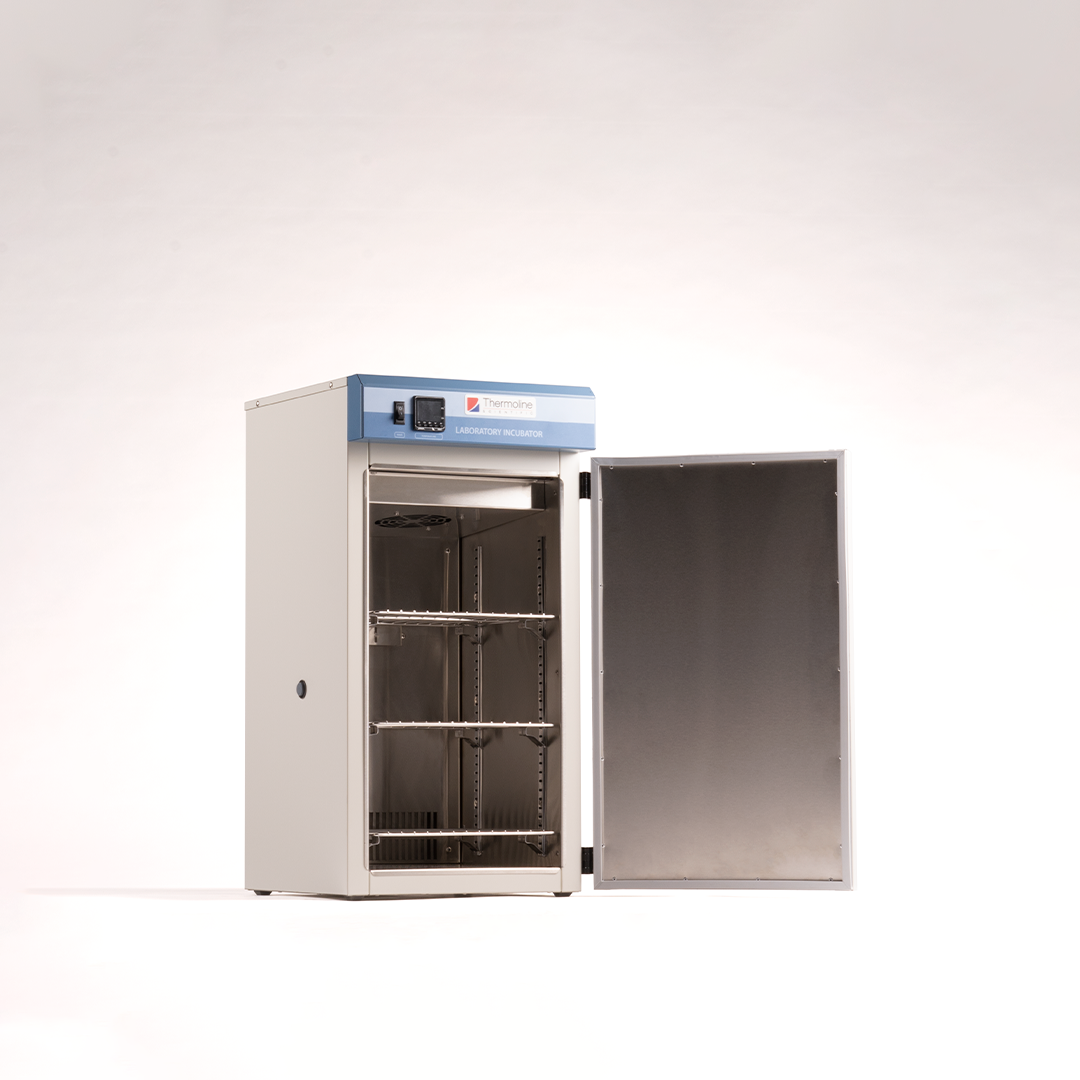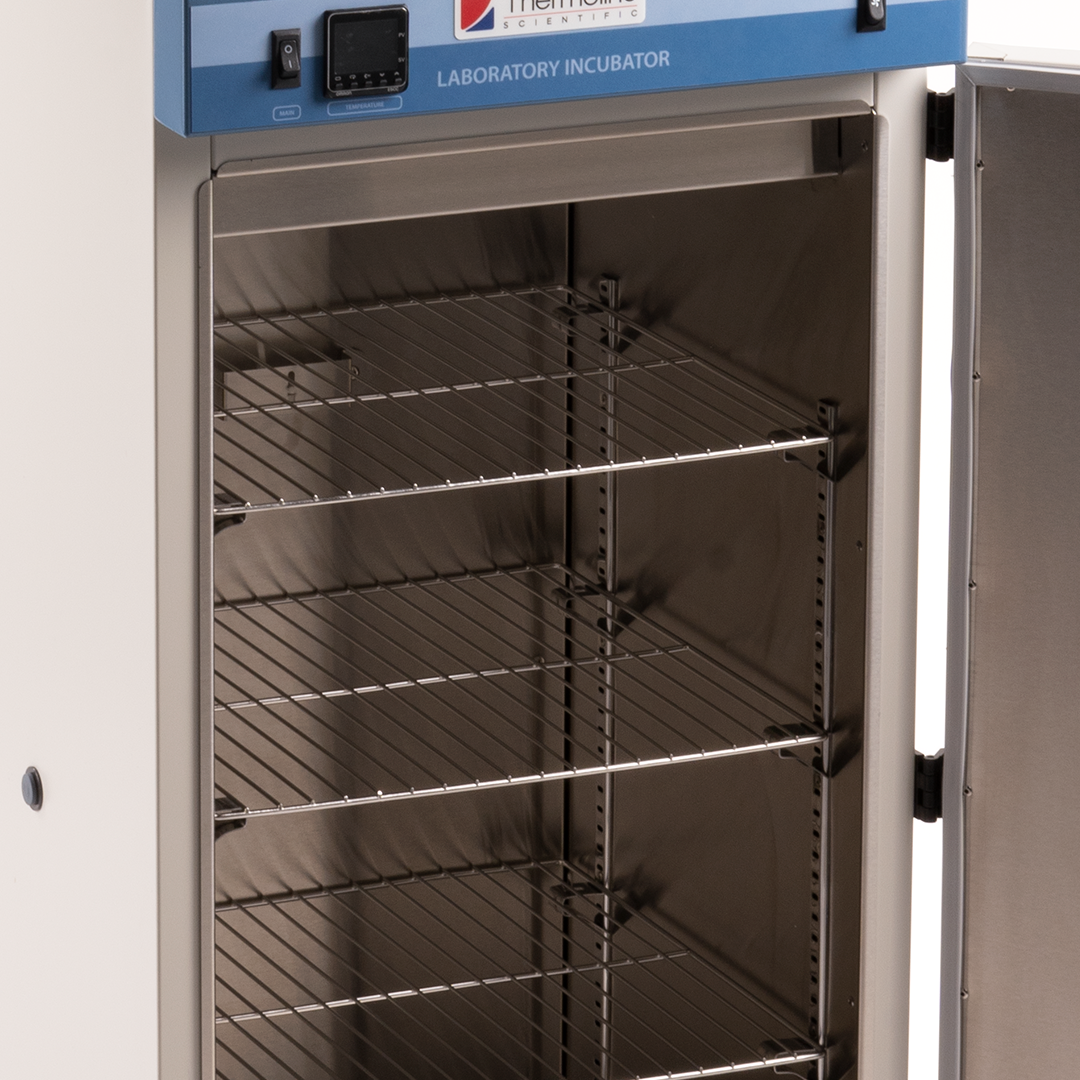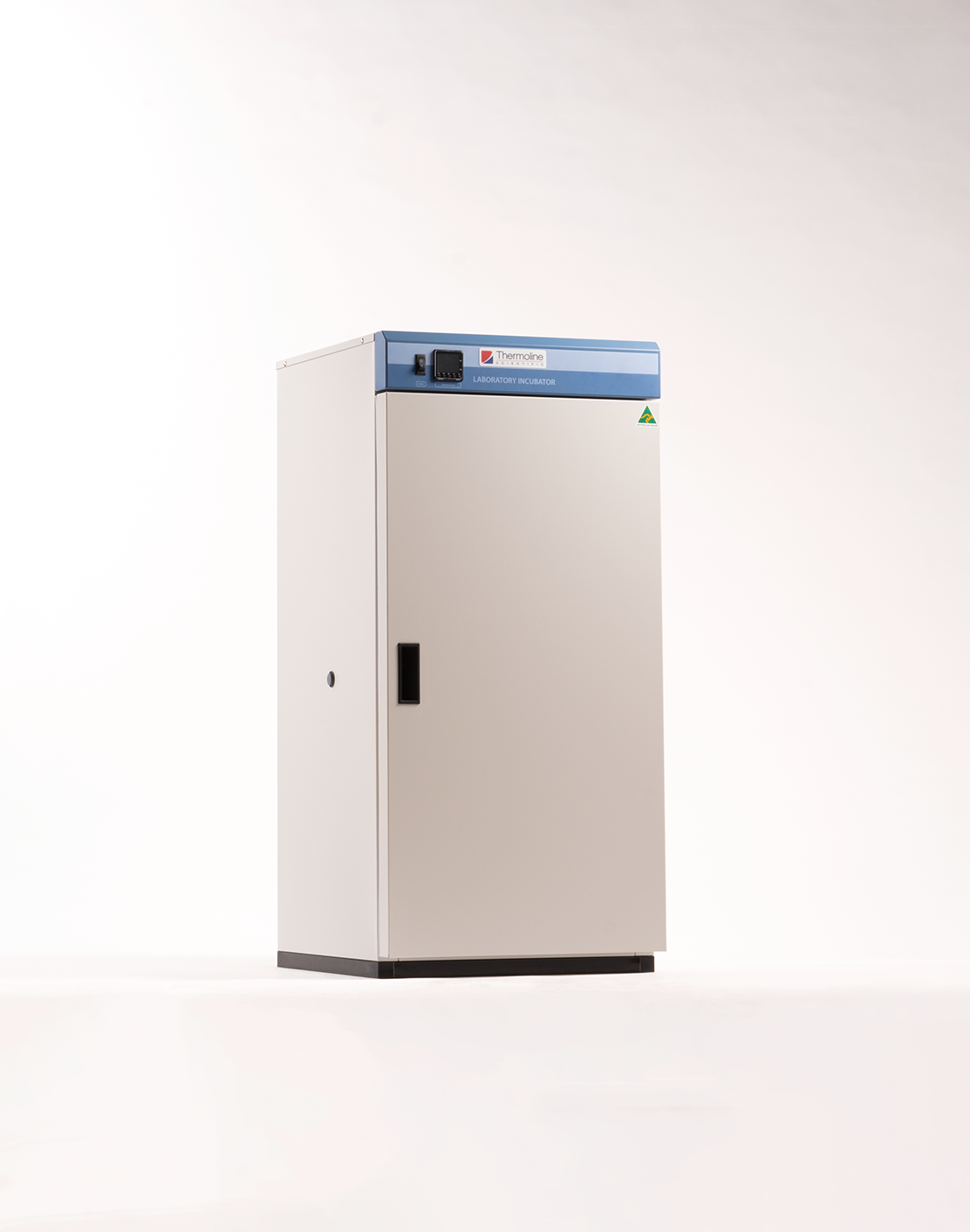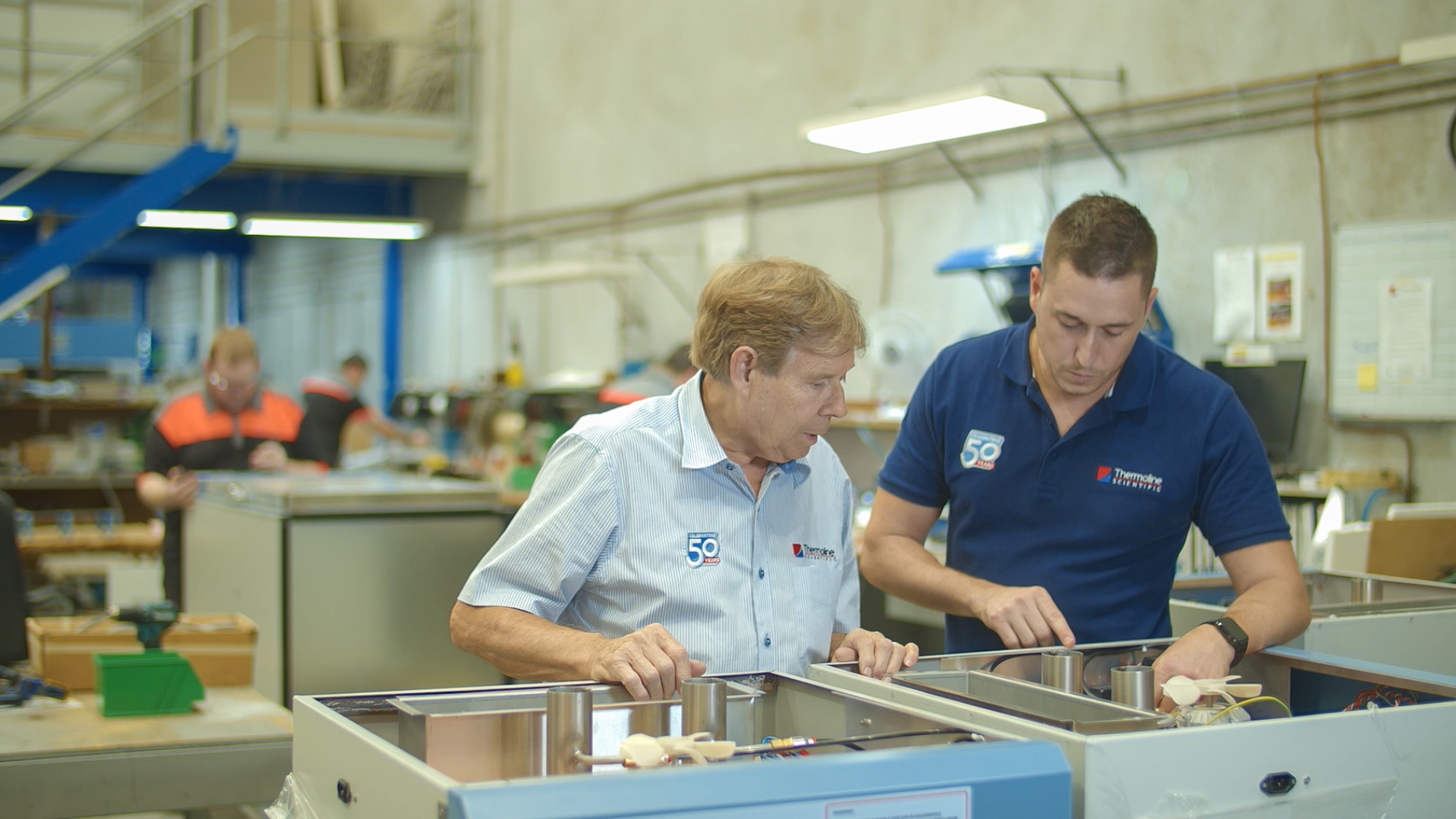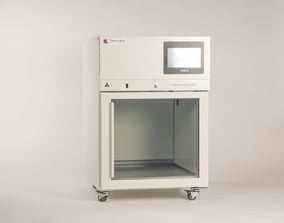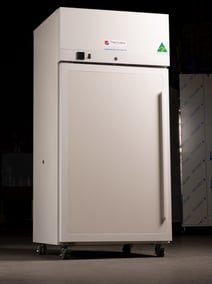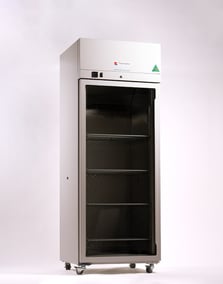Benchtop Incubators TI
Thermoline has eight laboratory incubators available, all designed and manufactured in Australia. This is the benchtop range and is made to meet your clinical environment's high standards; our benchtop incubators are innovative, easy to use and deliver consistent performance.
And thanks to the simple switch on the rear of the incubator, you can change between fan-forced and natural convection whenever you need.
The economical option for all test samples, our benchtop incubators can aid you with a diverse array of applications.
Overview
Thermoline laboratory benchtop incubators are meticulously designed to meet the demanding requirements of scientific research and clinical applications. These Australian-made incubators offer precise temperature control and a compact footprint, making them ideal for laboratories with limited space. Whether you're conducting microbiological studies, cell culture experiments, or general incubation tasks, Thermoline benchtop incubators deliver consistent and reliable performance.
Key Features
- Precise Temperature Control: With a digital microprocessor control and a temperature range from ambient +5°C to +60°C, our benchtop incubator provides stable and controlled environments essential for microbiology, cell culture, and molecular biology research.
- Durable Construction: Featuring a 304-grade stainless steel internal liner and a magnetic door gasket to ensure complete door closure, these incubators are built for long-term use and easy maintenance.
- Versatile Operation Modes: Easily switch between fan-forced or gravity convection operation using the switch on the rear of the incubator, catering to a variety of sample requirements.
Benefits
- Space-Saving Design: The compact size of Thermoline benchtop incubators makes them perfect for laboratories with limited space, allowing you to maximise your work area without sacrificing performance.
- Consistent Performance: Reliable temperature control and uniform heat distribution ensure that your samples are incubated under optimal conditions, enhancing the accuracy and reproducibility of your experiments.
- Enhanced Sample Safety: Built-in safety features, such as over-temperature protection, provide peace of mind, ensuring that your valuable samples remain secure and undamaged.
Summary
Designed and manufactured in Australia, Thermoline's incubator range, including benchtop, premium, and large-capacity models, is tailored to suit your clinical environment. As the nationwide industry standard, our incubators provide your lab with the stable, controlled environment commonly required for a wide range of scientific applications. The economical and user-friendly benchtop incubator is perfect for all non-critical samples requiring incubation.
Choose Thermoline benchtop incubators for your laboratory needs and experience the benefits of superior performance, enhanced sample safety, and efficient use of space. Trust Thermoline to provide the high-quality equipment essential for your critical research and clinical tasks.
Specifications
- Dimensions
-
TI-20F TI-50F TI-80F TI-120F TI-280F External WxDxH (mm) 370x380x470 370x380x720 370x380x910 465x485x985 570x595x1235 Internal WxDxH (mm) 300x300x235 300x300x485 300x300x675 395x405x735 500x505x985 Clearance Front (mm) 370 465 570 Back (mm) 100 Sides (mm) 100 - Technical Specification
-
TI-20F TI-50F TI-80F TI-120F TI-280F Temperature Range Ambient +5°C to +60°C Temperature Control Stability +/- 0.1°C Temperature Uniformity With Fan +/- 1.0°C | Without Fan +/- 2.0°C at 40°C Nominal Capacity 20L 50L 80L 120L 280L Porthole Diameter 13mm Weight 15kg 18kg 30kg 50kg 80kg Electrical 100W/230V 130W/230V 175W/230V 310W/230V 515W/230V - Features
-
TI-20F TI-50F TI-80F TI-120F TI-280F Shelves (max @100mm spacing) 2 (max 2) 3 (max 4) 4 (max 6) 4 (max 6) 5 (max 7) Adjustable Feet X X X X ✔ Internal Fan ✔ ✔ ✔ ✔ Fibreglass Insulation ✔ ✔ ✔ ✔ ✔ Omron E5CC-T Controller ✔ ✔ ✔ ✔ ✔ Solid Door ✔ ✔ ✔ ✔ ✔ Inner Polycarbonate Door Optional ✔ - Safety
-
TI-20F TI-50F TI-80F TI-120F TI-280F Over Current Protection ✔ ✔ ✔ ✔ ✔ Over Temperature Safety ✔ ✔ ✔ ✔ ✔ - Options
-
TI-20F TI-50F TI-80F TI-120F TI-280F BMS Plug No volt contact closure plug and socket connection to a Building Management System Additional Shelves Additional Stainless Steel shelves to suit Door Locks Key lockable door locks Customisable Port Hole Add additional 13mm port holes or choose 50mm port holes Castors Castors can be tted to allow for easy moving of the cabinet. Not recommended for cabinets mounted on a bench
Downloads
Support & FAQs
At Thermoline, we strive to supply helpful customer support to ensure that you get the most out of our products. We are committed to providing whatever support our customers need, wherever they are in the world. If you can't find your solution in the below FAQs or Knowledge Base, please contact our friendly support team.
- What is a laboratory incubator?
- The purpose of a laboratory incubator is to provide an environment for safe and reliable work with cell and tissue cultures by regulating conditions such as temperature, humidity, and CO2.
- What is a lab incubator used for?
A laboratory incubator is a device used to provide a controlled environment for the growth and maintenance of cell cultures, microorganisms, and other biological samples. The incubator maintains a constant temperature to promote the growth of cells and microorganisms under optimal conditions. Some incubators are used to increase the growth rate of organisms, having a prolonged growth rate in the natural environment.
- What is a refrigerated incubator?
- Refrigerated incubators and cooled incubators are designed to maintain a constant temperature based on cooling requirements for research. Typical temperature settings ranging from +5°C to +40°C are most commonly used. Refrigerated Incubators often perform biological oxygen demand (BOD) testing, which requires temperatures of +20°C to +25°C.
- How do I choose a laboratory incubator?
The size and capacity of the incubator are the first and most essential considerations. Estimating the number of samples incubating at any one time will give a general idea of the proper internal volume.
A refrigerated incubator will need to be required for any application when close to ambient or below ambient temperature conditions are required.
- What temperature should a slide warmer be set at?
A slide warmer is a laboratory equipment used to heat microscope slides for various applications such as drying, fixation, or staining of biological specimens. The temperature setting for a slide warmer can vary depending on the specific application, but it is typically set to a temperature between 37°C to 60°C.
For example, if the slide warmer is being used for drying microscope slides after they have been washed, the temperature setting may be set at 37°C to avoid overheating and damaging the specimen. However, if the slide warmer is used for fixing or staining biological specimens, the temperature setting may be higher, typically between 50°C to 60°C, depending on the specific protocol or procedure being used.
It is important to follow the specific instructions for the application and to monitor the temperature to ensure that it remains within the appropriate range to avoid overheating or damaging the specimens.
- Can a laboratory oven be used as an incubator?
- An oven cannot be used as a lab incubator because most ovens cannot maintain the low temperatures required for incubation purposes.
- What is a CO₂ incubator used for?
- A CO₂ incubator is used to create and maintain the ideal conditions for cell and tissue culture, providing controlled temperature, humidity, and carbon dioxide levels essential for research in areas like cell biology, microbiology, and drug development.
- What is the difference between a normal incubator and a CO2 incubator?
- While normal incubators are versatile for general laboratory use, CO₂ incubators are purpose-built for applications requiring precise CO₂ and environmental control, making them ideal for advanced biological research.

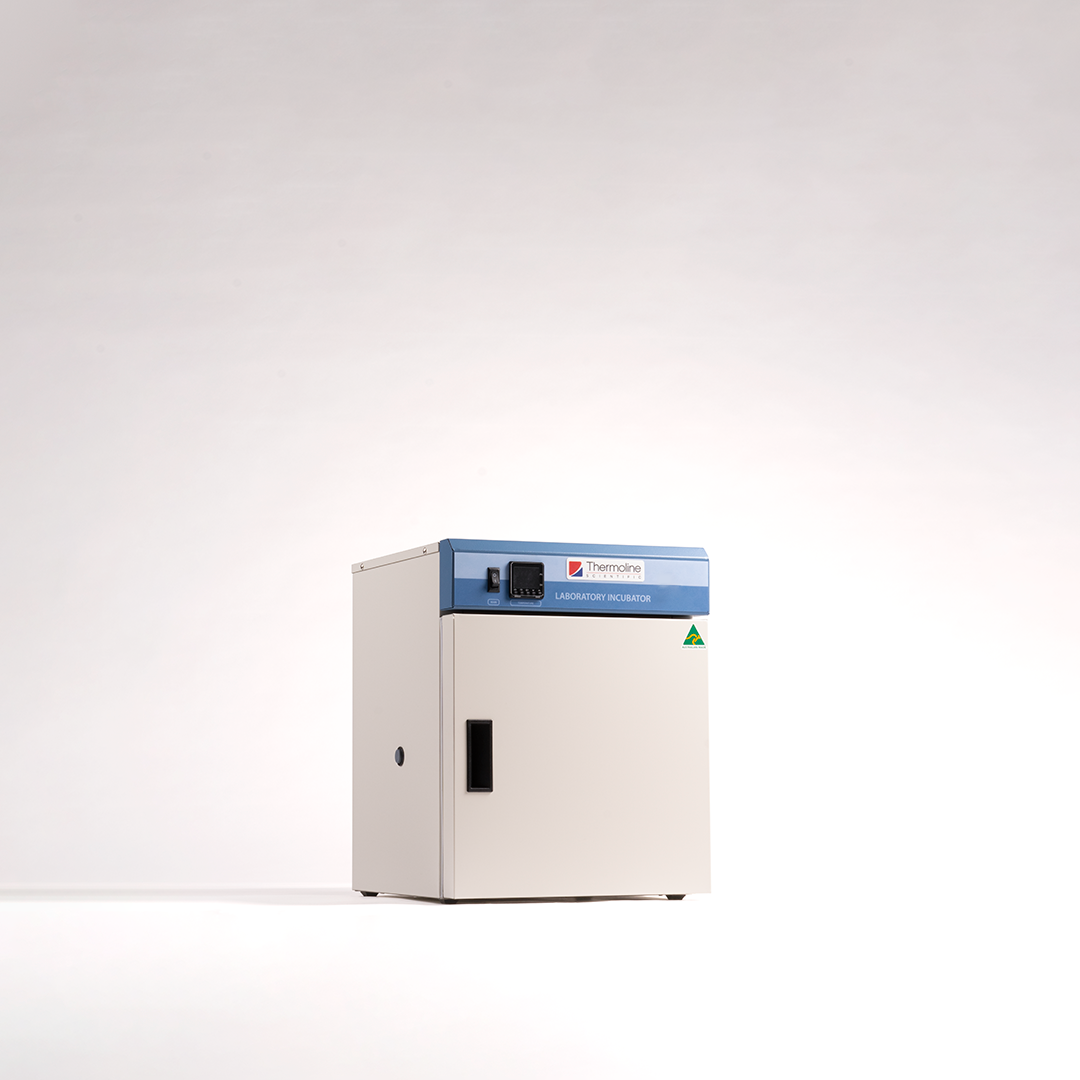
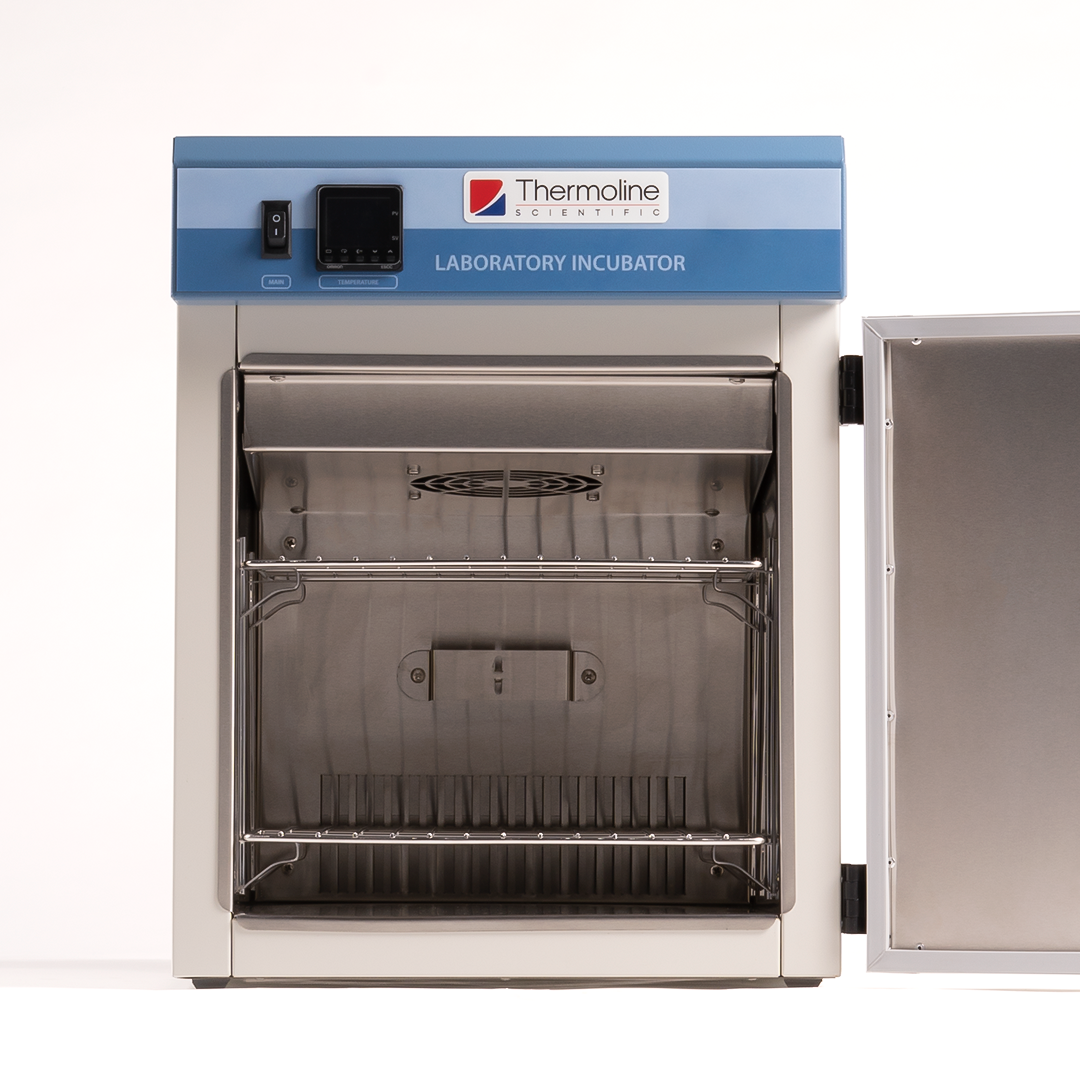
-2.png)
